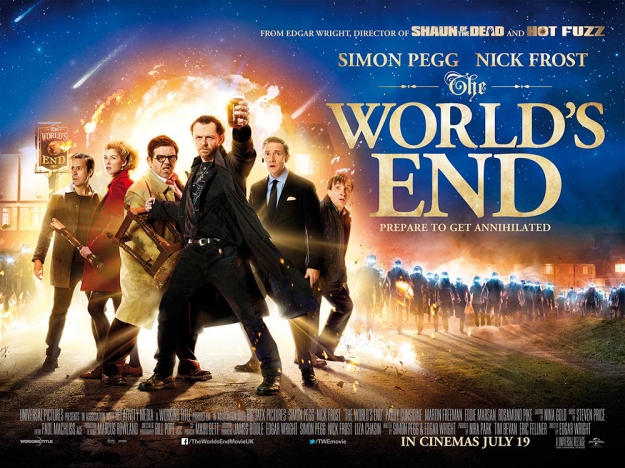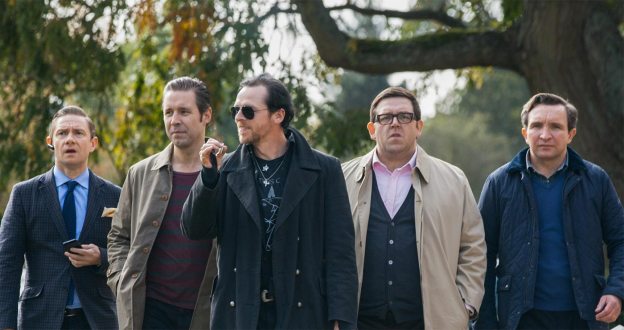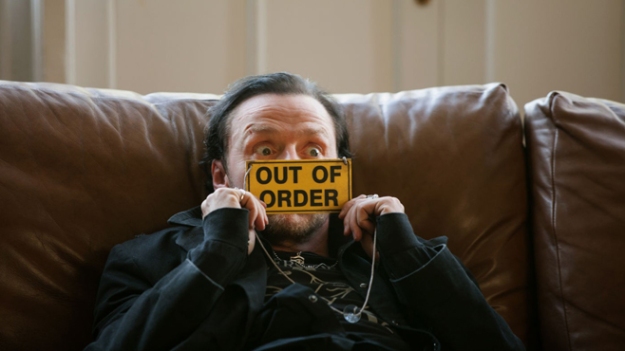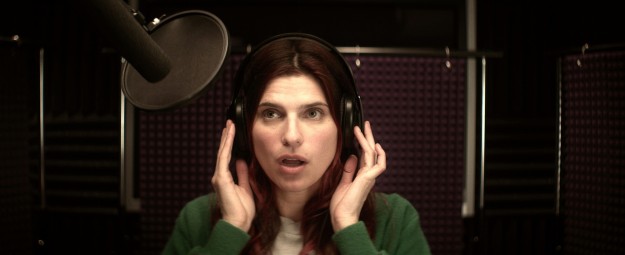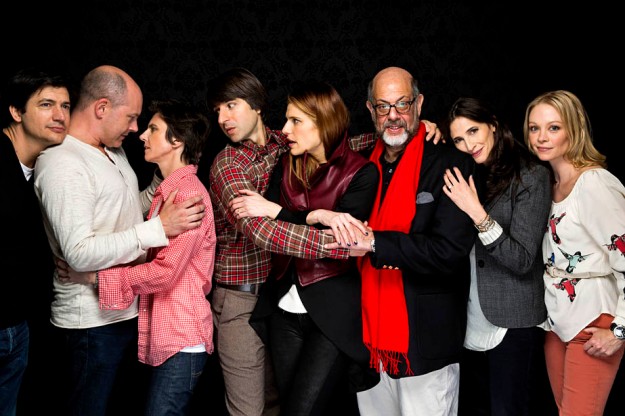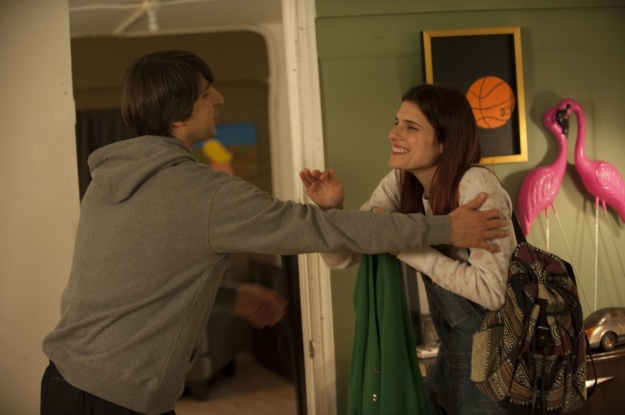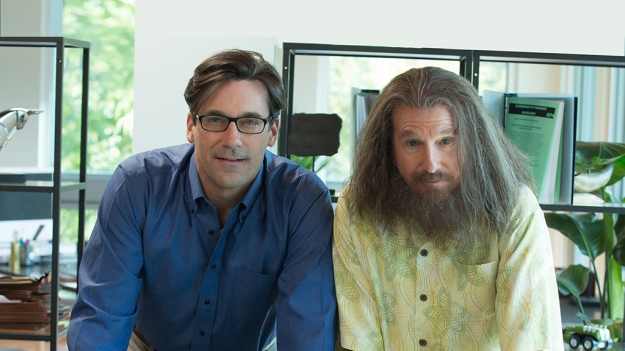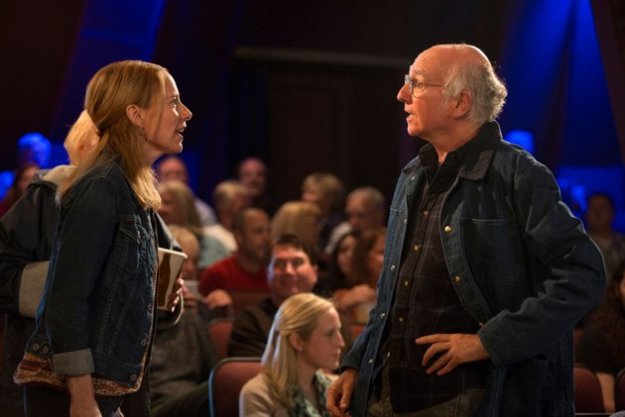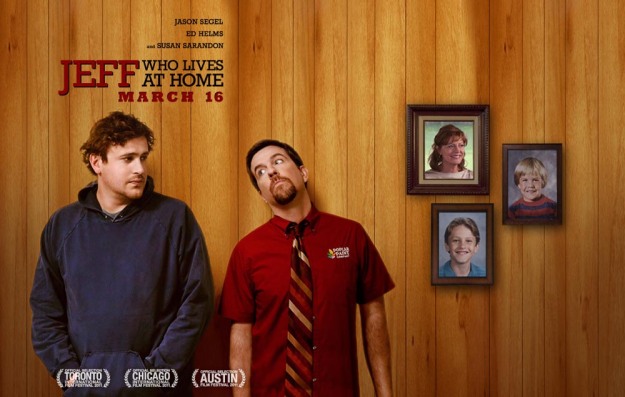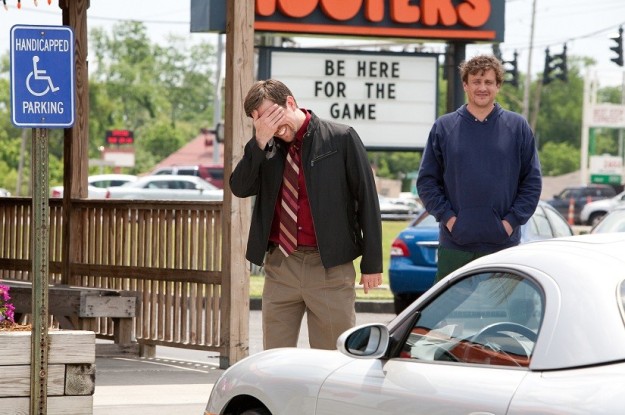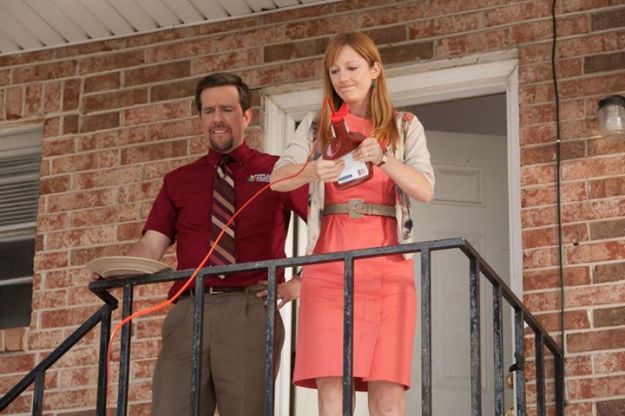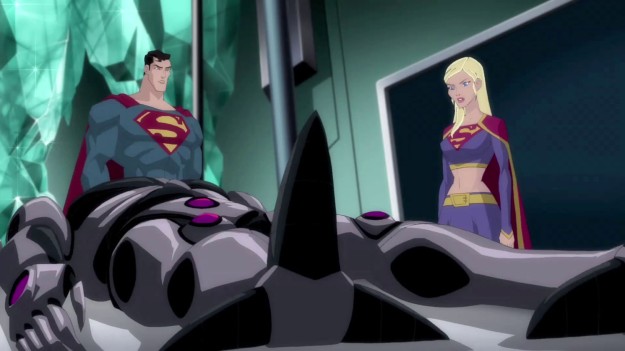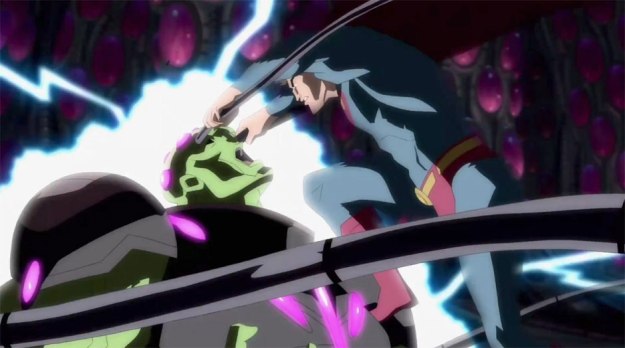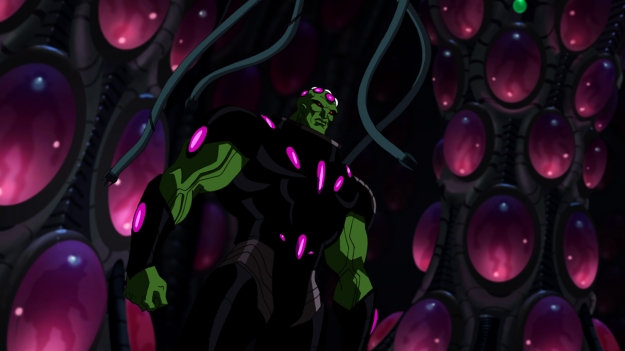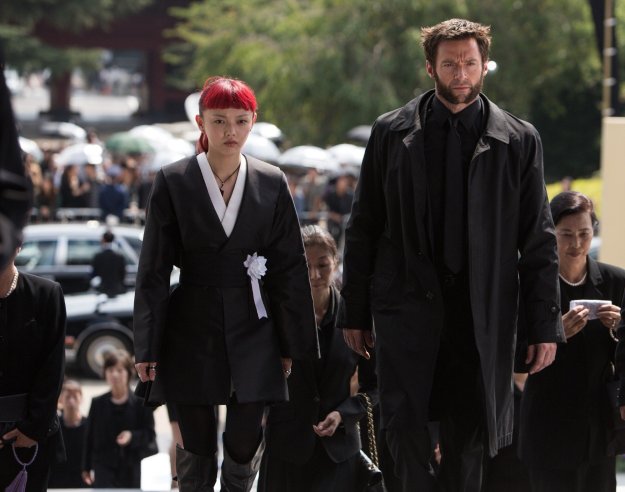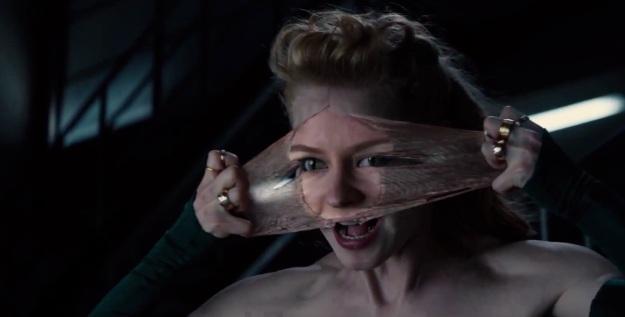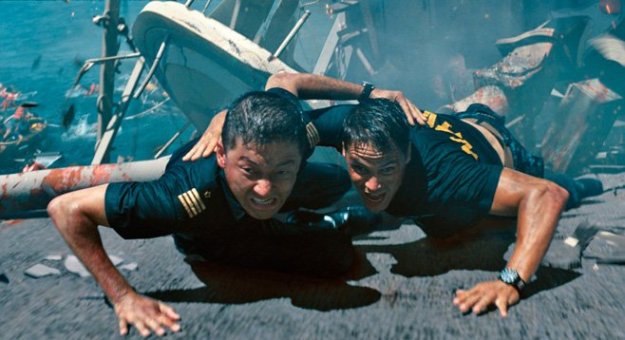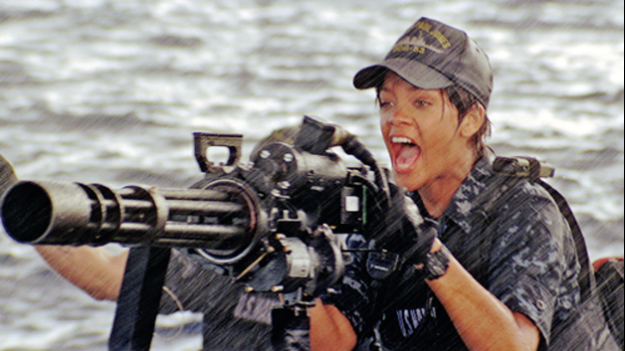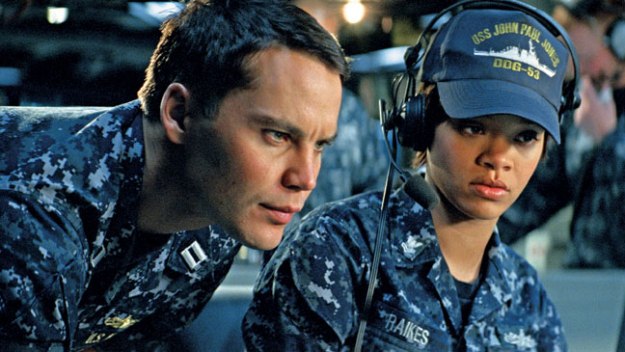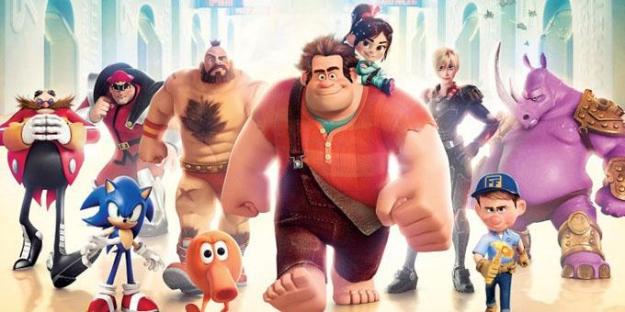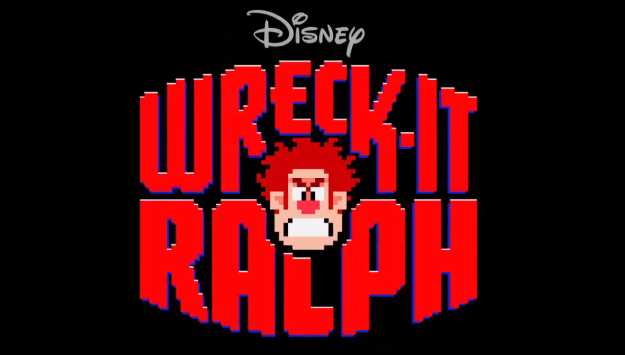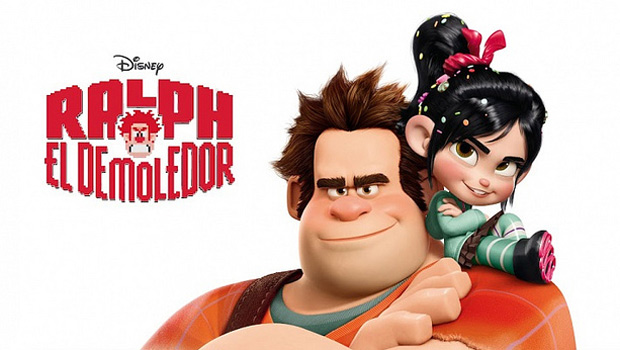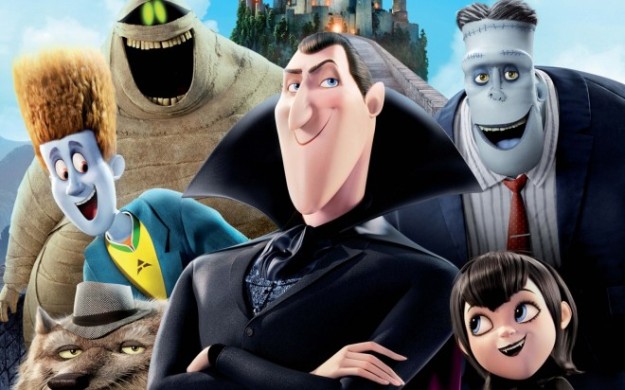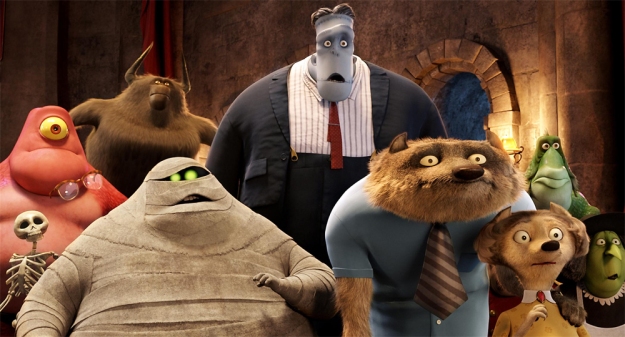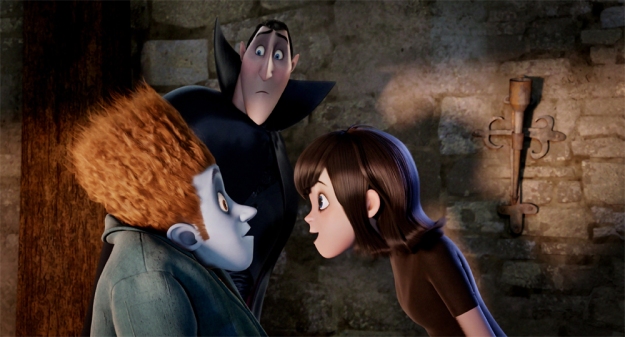Shaun of the Dead and Hot Fuzz are two of the great comedies of the new millennium and the loose “Cornetto trilogy” that comprises them has finally been completed with The World’s End, a tale of the disappointments of aging, pub-crawling, and extraterrestrial robots. The World’s End is directed by Edgar Wright, and stars Simon Pegg, Nick Frost, Martin Freeman, Paddy Considine, Eddie Marsan, Rosamund Pike, and seemingly half of the working actors in the United Kingdom in bit parts.
Gary “The King” King (Simon Pegg) was something of a hot commodity as a teenager in Newton Haven, the small town where he grew up. Over the years, King, so cool and popular in his youth, has degenerated into a pitiable husk of a man desperately trying to cling to the glory days of his youth that occurred almost two decades prior. He decides that the only way to salvage the pathetic state his life is currently in is to get back together with his childhood friends and finally accomplish something they failed at as teenagers: the Golden Mile, an epic pub-crawl comprising twelve pubs and twelve pints.
His four friends have all moved on with their lives. They have jobs, they wear ties, and they have not spent twenty years dreaming about passing out inside of The World’s End, the last pub of the Golden Mile, after spending a night drinking. Nick Frost plays Andy, Gary’s former best friend who he wronged years prior. Martin Freeman plays Oliver, whose unfortunate birthmark christened him O-Man for much of his youth. Paddy Considine plays Steven, who loved Oliver’s sister and resents Gary for drunkenly sleeping with her once when they were teenagers. Eddie Marsan plays Peter, a family man long removed from the days of being bullied at school. All of them have moved on, but all of them are drawn back by Gary’s promises of booze and belonging.
The quintet finds themselves back home and attempts the twelve pub crawl, but is sidetracked when they discover that Oliver’s sister Sam (Rosamund Pike), is back in town as well, and, oh yeah, just about everyone in newton Haven has been replaced by robots from space that are filled with blue, ink-like blood (probably should have gotten to that one first). Naturally, our five do the only thing that makes sense: complete the Golden Mile before the robots realize what they know. Note: they are all half in the bag by this point. So as their night goes from disappointing to terrifying, the five friends must fight for their lives and ask the age-old question: why did I listen to Gary f*cking King.
Simon Pegg, fresh off of Star Trek: Into Darkness, is back in another science-fiction effort, though one with fewer lens-flares and more drinking. Pegg is very much at the center of this film, and he is up to the challenge of being both charming and utterly pathetic. Gary King is one of those guys that never realized wanting to have fun forever means you probably will never have very much at all. He also calls his car “The Beast” and himself “The King” without a trace of irony, which is rather unacceptable for a grown man, even one who still wears the same coat he did as a seventeen year old.
Nick Frost, Pegg’s longtime comedic wing-man, plays someone who was tired of cleaning up his best friend’s messes and dealing with the inevitable betrayals and actually managed to leave him behind, only to be coerced back years later. He does well with material a little darker than he is typically associated with while still being very funny. Martin Freeman, Bilbo Baggins himself, is strong as well, if a bit underused in his role. Paddy Considine and Eddie Marsan are also reliably funny and consistent throughout the film. Rosamund Pike seems underused as well, her character seems like a prize for one member of our group, an object of lust for another, and a sister for yet another and not much else, which is a shame, because I like the actress.
Simon Pegg and Nick Frost seem to be carving out a niche for themselves in comedies with a science-fiction bent. Starting with Spaced, then Shaun of the Dead and Paul, and now The World’s End, the duo seems to know what they like. The aliens present here are actually legitimately interesting and rather unique in their motivations when compared to so many other cinematic aliens before them. They also seem like something out of a crappy video game, and I legitimately mean that in the best way possible. The fight scenes, while funny initially, seem to drag after a while, particularly as they become increasingly drawn out and complicated towards the end of the film.
This is the darkest film yet in the Cornetto Trilogy, and probably the most mature Pegg and Frost have done together. Whereas Shaun of the Dead was about a guy realizing he needs to start maturing before it is too late, The World’s End is about a guy who realizes after it is already way too late. Gary is a character, while good for making audiences laugh, is nothing short of depressing to think about. His friends, while successful, are also feeling the pressures of aging, albeit in ways that won’t send them towards the bottom of a beer stein. The symbolism of the town you grew up in looking the same but being totally different is a bit on the nose, though it works for The World’s End.
I’m a fan of Simon Pegg, Nick Frost, and Edgar Wright, together and separately, so I was admittedly a bit pumped to see The World’s End. The film managed to meet my expectations, and while it did not exceed them, meeting high expectations is certainly nothing to scoff at. The story and acting are strong, the humor is biting, and the ending is surprising, so go see The World’s End, and watch some grown men get inebriated and brawl with robots.
